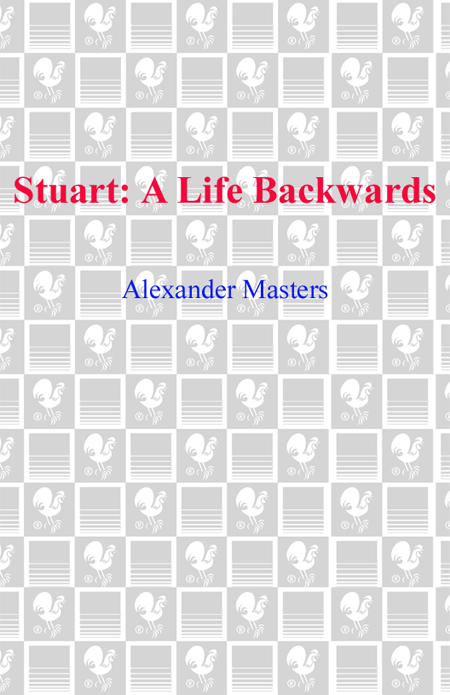
Stuart
A Life Backwards
کتاب های مرتبط
- اطلاعات
- نقد و بررسی
- دیدگاه کاربران
نقد و بررسی

Starred review from April 10, 2006
The British antihero of this moving biography started with teenage glue-sniffing, petty thievery and gang brawls, then graduated to heroin and major thievery. He endured prison stints and led a "medieval existence" on the streets, finally emerging into triumphant semistability as an "ex-homeless, ex-junkie psychopath" with only occasional episodes of violence and suicidal impulses. In Cambridge, England, Masters, an advocate for the homeless, befriended Stuart—someone for whom "cause and effect are not connected in the usual way"—and found him at times obnoxious and repellent, but also funny and honest. Masters notes bad genes and childhood sexual molestation, and critiques "the System" of British welfare and criminal justice institutions that help with one hand and brutalize with the other, but he doesn't reduce Stuart's intractable problems to simple dysfunction or societal neglect. By eschewing easy answers (the easy answers—don't drink, don't use, don't steal, don't play with knives—are precisely the hardest for Stuart), he accords full humanity to Stuart's stumbling efforts to grapple with his demons. Hilarious and clear-eyed, the author's superbly drawn portrait of Stuart is an unforgettable literary evocation and a small masterpiece of moral empathy and imagination. Photos.

June 1, 2006
This biography reads like a mystery novel, which is just what its subject, Stuart Shorter, wanted. When homeless advocate Masters discovered ex-con Shorter drunk on the Cambridge streets, he rose to the challenge Shorter threw him: -What murdered the boy I was? - As Masters travels back through Stuart -s past, he provides clues for the reader; as in a good mystery novel, these clues are not obvious but neatly masked by all the false leads and dead ends of Stuart -s life: the overdoses, prison stays, and crimes of rage that over time exasperate even his dedicated biographer. The book -s subplot, which deals with whether two charity workers will be freed from jail for committing the -crime - of running a homeless shelter where drug transactions took place, also spurs the reader to turn pages. Best of all is the language -contemporary, eclectic, creative, and so humorous that it helps soften the shock of learning what it -s like to lead the kind of life Stuart has led. Highly recommended for public and academic libraries." -Maria Kochis, California State Univ. Lib., Sacramento"
Copyright 2006 Library Journal, LLC Used with permission.

Starred review from May 1, 2006
Masters' story of Stuart Shorter, a thief, homeless man, muscular--dystrophy victim, and drug abuser, is raw, disturbing, and unsettling but also revelatory and life-affirming. The two men met working on a campaign to free Ruth Wyner and John Brock, leaders of the Wintercomfort for the Homeless program in Cambridge, England, after the pair were wrongly imprisoned. Masters was intrigued by the fact that Stuart was a rare success story in the world of the homeless; after decades on the streets, he had overcome his drug addiction and was living in a sheltered apartment. Beginning with the 33-year-old Stuart, Masters works backward to find what particular influences, people, circumstances, and events transformed a sweet, sunny child into the violent, abusive, antisocial adult Stuart had become before his "rescue" by two tireless, dedicated, tenacious care workers. What Masters discovers is a troubling, often shocking story. Stuart's loving but dysfunctional family, the British educational system, faceless bureaucrats, uncaring teachers, abuse and neglect, and "the System" itself all played a role in shaping the adult Stuart, who had totally lost control of his life even in his teens. Masters tells Stuart's story with the great affection and painful honesty of a longtime friend. This is a must-read book that is warmly funny, deeply moving, and utterly extraordinary.(Reprinted with permission of Booklist, copyright 2006, American Library Association.)

























دیدگاه کاربران